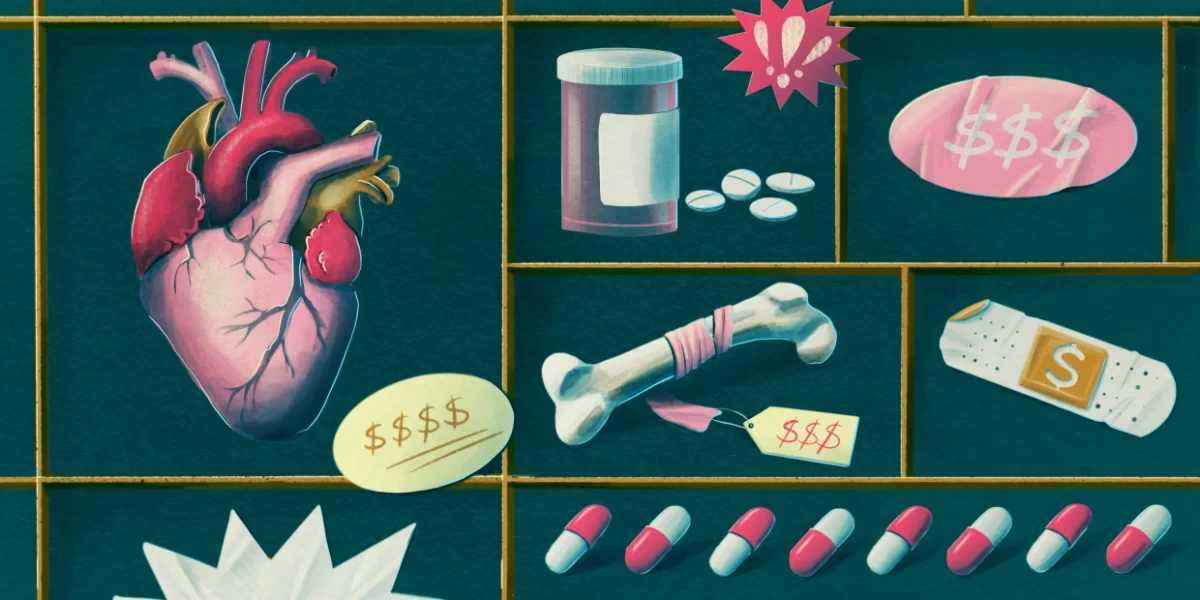As a third-year nursing student, I was taught about various diseases, how to provide care and use hospital equipment, and I learned about laws that are designed to protect patients and their rights; I even got the opportunity to visit a hospital and apply the skills I learned. The experience taught me things that we cannot learn just by reading a textbook, and it also showed me the dark side of health care that is not getting enough attention from the public. Systemic flaws, hospital staffs’ mentality and outdated systems all contribute to the nation’s health care crisis. Changes, both short- and long-term, are necessary to protect our citizens.
The first necessary change is to adjust health care costs. During my first year, I visited the emergency room because I had low blood pressure and almost passed out during my clinical. I was diagnosed with anemia, received two units of blood and had to spend the night at the hospital as I waited for blood to be available. A month later, I received a medical bill of over $9,000 for five hours in the emergency room, a liter of normal saline, two units of blood, sleeping over in the observation room and blood labs. Although I was lucky enough to have insurance and only ended up having to pay a copay, those that cannot afford insurance risk having to spend an unbearable amount of money to get treated. As a result, people are less likely to seek medical attention, which can impair their health.
In order to find solutions, we must understand the reason why health care is so expensive. According to the Peter G. Peterson Foundation, health care prices have increased at an average rate of 2.5% per year and the U.S., compared to other wealthy countries, has spent the most on health care. Reasons for the increase in cost include unnecessarily prolonged administrative processes that require more staffing, a lack of government regulation, inflated costs of medication and procedures, the enormously high salaries of medical professionals and corporate greed and price gouging. To address this problem, the government must maintain strong control of the health care system by regulating the cost of procedures and medications, set legal standards for how insurance providers cover and charge patients, distribute tax money to improve the quality of health care and expand access.
The second change to make health care accessible and improve its quality is to improve the working conditions of hospital staff. During labs, the teaching assistants—who were mostly graduate students training to become nurse practitioners—would tell us about the measures that hospital administrators take to cut spending by overworking the staff. As a result, nurses experience burnout from performing under constant pressure, juggling large workloads and dealing with disrespectful patients; meanwhile, the staff remain underpaid. During my first year, I would constantly doubt my career path as a nurse after observing all the stressors nurses complain about. In my short time as a nursing assistant, I was stressed out from patients treating me as if I were their subordinate, the endless amount of work given to me by my colleagues and having to deal with an overload of patients at the same time; I quit soon after. Such trends can be dangerous as they lead to increased costs and errors and longer processing times. To address this concern, hospitals need to become better working environments by implementing pay increases and measures to protect staff from mistreatment and malpractice lawsuits, increasing staffing to reduce the workload and changing the public perception about staff.
The last change needed to be made is to reconcile the conflicting sentiments of patients, medical professionals and insurance companies. Patients want to get the most coverage while paying the least. However, a high reliance on insurance companies and frequent hospital visits can put a tremendous financial toll on facilities and insurance companies. Health care professionals need to pay off their student loans and want to be compensated for the hard work they put in. Hospitals and insurance companies want to make enough revenue to sustain their facilities. Even the government wants to choose the most efficient option for spending tax money so as many people as possible can benefit out of the limited funds. These conflicting desires lead to a vicious cycle: Patients rely heavily on insurance, creating a hefty financial toll on hospitals and insurance companies, leading to worsened coverage. Hospitals then generate less revenue, which forces them to cut costs in management, staffing and employment. Skilled employees in search of high incomes become burnt out, and the quality of service patients receive will decline.
In order to address the current health care crisis and for everyone to benefit, insurance companies need better regulation. Additionally, patients should attempt to take care of their health so they can reduce the need to visit the hospital. Insurance companies and hospitals should follow the government’s guidelines for covering and charging patients. Hospitals should improve the working environment, and health care professionals should focus on improving their quality of service.
Although health care is a complex system linked to multiple fields, it is a basic human right that needs to be extended to everyone, not only for “the privileged.” Many short- and long-term changes are needed so that everyone can be satisfied and content.



